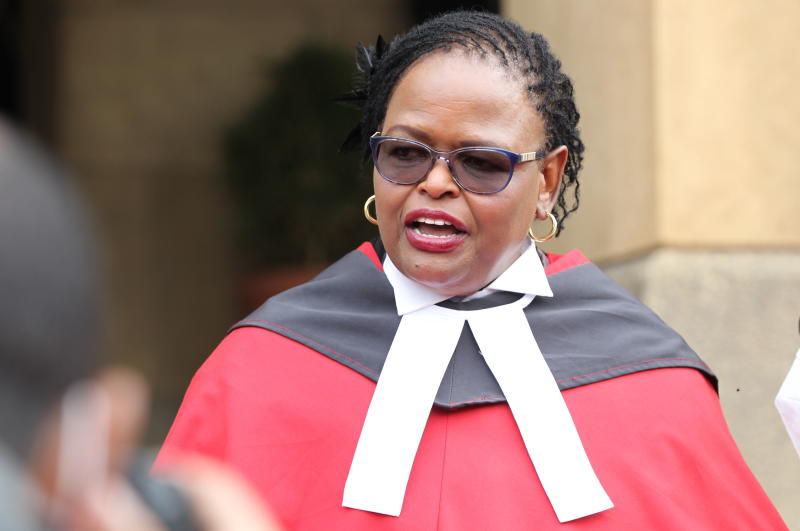Catch me if you can: Did Kenya harbour the ‘Eichmann of Africa’?
- Spotlight East Africa
- Jun 1, 2020
- 4 min read

One of Africa’s most wanted men has finally been caught. Félicien Kabuga’s arrest in a third-floor apartment in a Parisan suburb brought an end to one of the largest transcontinental manhunts in history. For 26 years the businessman who bankrolled the Rwandan genocide evaded police forces across Africa and Western Europe. “He was our Klaus Barbie, our Eichmann”, Etienne Nsanzimana, the head of a group for genocide survivors, told Reuters, a news agency.
Kabuga stands accused of being the mastermind behind the killing of 800,000 in just 100 days. It’s thought his company imported hundreds of thousands of machetes, the genocidaires’ weapon of choice, and distributed them to the Interahamwe, the Hutu militia that carried out most of the killings. He’s then thought to have directly financed the group, supplying them with uniforms and vehicles. Finally, it’s believed Kabuga, as one journalist put it, “provided the genocide’s soundtrack”. His radio station, Radio Mille Collines, encouraged its listeners to kill their Tutsi neighbours, calling them “cockroaches”. “The graves are only half full”, the presenters would say. “We must complete the task”.
But while Osama bin Laden was forced to hide in mountainous caves for a decade in Afghanistan and Pakistan, Kabuga roamed European capitals at will, moving between Switzerland and Germany, Belgium and the Democratic Republic of Congo, before a surveillance operation on his 11 children, some of whom live in Belgium, the UK and France, eventually led to his arrest. And while Kabuga’s arrest is rightly celebrated, it also raises serious questions. How was he allowed to move so freely for so many years? Who helped him? We may never know the all the answers, but fingers are already pointing to one county in particular: Kenya.
Money and powerful connections certainly helped Kabuga cross international borders with the ease that he did. It’s thought he moved to France within the last three years, having spent the majority of his time hiding in Kenya, where his family still maintains business interests. There, he was said to have enjoyed the protection of high-profile Kenyan officials close to the former President, Daniel arap Moi, who died in February this year. Moi was a close friend of Juvenal Hasyarimana, the Hutu president who’s murder sparked the genocide. Two of Kabuga’s daughters are married to sons of Hasyarimana, which offered him great influence and access to Moi.
A Kenyan government source told reporters the FBI, who had a US$5m bounty on Kabuga’s head, came close to arresting him in 2002. A local journalist had gone to the US embassy in Nairobi claiming to have knowledge of his whereabouts, but was murdered before any action could be taken. After Kenyan police did not appear to show any interest in investigating his death, the embassy released a statement in which they said they believed his murder “directly related to his willingness to come forward with information on the whereabouts in Kenya of Félicien Kabuga”.
Others too, tried to work with the FBI, but often suffered the same fate. In 2003 police raided a Nairobi home where William Munuhe, an informant working with the Americans, had promised to lure Kabuga. When they finally entered two days later, they found nothing but blood-spattered walls and Munuhe’s half acid-dissolved body. Further attempts to grab Kabuga in 1997 and 2008 ended in similar failure. Detectives would often find a note warning him to get out. Or a corpse.
In 2009 the case became a serious point of contention between the US and Kenya, after President Barack Obama sent Stephen Rapp, a senior advisor on war crimes, to speak to Moi’s successor, Mwai Kibaki. According to Rapp, the US “had credible information on the fugitive’s location and the powerful people protecting him”. But Kibaki would not budge. The search continued nonetheless and human rights activists suggested Kabuga was in Eldoret, close to the Ugandan border, as recently as 2016. However by then the fear was that anyone who tried to help in the search would be killed, and authorities all but gave up. That was until last year, when eight Western countries mounted a fresh investigation, during which French cooperation proved pivotal, according to Serge Brammertz, the chief prosecutor of the International Residual Mechanism for Criminal Tribunals.
French involvement in the Rwandan genocide has been a source of controversy and debate ever since 1994. The French government at the time backed Hasyarimana against the Tutsi-dominated Rwandan Patriotic Front (RPF), and, along with Kabuga, provided much of the arms and training to the Interahamwe. The RPF’s leader, and now president of Rwanda, Paul Kagame, has long blamed France for its role in the genocide. Recent accusations that they were harbouring Kabuga brought the relationship to a new low.
In April 2019 French President Emmanuel Macron appointed a panel of experts to investigate France’s role in the genocide, which Rwanda saw as a welcome development. Kabuga’s arrest will no doubt thaw relations further, and perhaps go someway to appease French guilt.
Kenya, on the other hand, show no remorse. For decades high-profile government figures, and possibly even presidents, protected one of Africa’s most brutal murderers, hindering all attempts to bring him to justice. Tragically, the incumbent government is unlikely to offer any assistance to investigators seeking to understand who was involved; both President Kenyatta and Vice-President Rutto have got history with the International Criminal Court. France is coming to terms with its past involvement in Kabuga’s case. Kenya must do the same.




Comments